| | | | | | | | Thinking with the Heart:
Went to the Desert for the Wildflowers,
Came Back Blessed with a Gift! The desert was blooming in mid/late-May, so I decided to go and take photos of wildflowers. Drove down US 395 from Bishop to Lone Pine, turned east onto CA-136 south of town at the Eastern Sierra Visitor Center, later, onto CA-190 toward Death Valley and went as far as the Father Crowley Overlook and turned around. Snapped pictures along the way, and when I got back to the turnoff for the tiny mining town of Darwin, I decided to go and take a look. I had never been there before. It was just as I had pictured it: weathered, sun-bleached, forlorn. The town's population has been dwindling: from 53 in the 2000 U.S. Decennial Census, to 43 in 2010, to 36 in 2020. It feels like a town that is barely hanging on. But those who remain in Darwin have a strong sense of community. I had heard that the post office was the town's gathering spot, so that's where I headed. Indeed, there are chairs and a bench permanently placed outside it where locals with a rough-hewn charm gather to chat, share news, and gossip. Nearby, there are also shelves and boxes full of items free for the taking: canned foods, clothes, books, knick-knacks. Neighbors looking out for one another. There are also a couple of community bulletin boards. A flier pinned on one of them caught my eye: "Free! Adorable 5-week-old kittens need a good home. Sweet, playful, gray tabbies. Beautiful markings! 2 females, 1 male, litter box trained, affectionate, healthy." I thought with my heart. There was a number to call, but I had no bars on my cell phone. Not a problem: The one bearded local who was hanging out on the bench pointed to a fenced lot down the hill from the post office where there were two trailers. An elderly woman came out of one and let me in the gate. A man who looked to be in his late twenties or early thirties came out of the other. They were taking care of the kittens and other animals that had been left with them by a woman who had just moved out of town the night before. Neighbors looking out for one another's pets. I took the boy, as I already had two females (Buttonwillow and Phoenix, a calico and a Russian blue mix) and a male (Rescue, a white and orange tabby I've written about in a past issue of The Juniper). Good way to even out the pride. The kitten is just as the flier described him: adorable, sweet, playful, with beautiful markings, litter box trained, affectionate, and healthy. The Eastern Sierra is full of surprises: from the beauty of its natural wonders to the kindness of its nature-loving, down-to-earth folks, sparsely spread out from the desert to the slopes. Another surprise: Unbeknownst to me at the time of the kitten's homecoming, May was/is "National Be Kind to Animals Month." That sentiment should apply year round, whether we are talking about wild or domesticated animals. In the case of cats in particular, it is kindest to keep them indoors—for their own sake as well as for the health of the environment: They are hunters of small wildlife by nature (mammals, reptiles, birds and bugs), and are themselves predated upon by coyotes, bobcats, birds of prey and other wild animals. I learned a hard lesson last July, when Groom, my domestic short-haired black cat with beautiful green eyes went missing. A couple of nights later and through the following weeks, the howling of coyotes near my West Bishop home confirmed what was most likely his demise. Until then, my cats had been indoor/outdoor. No longer. The kitten just had his first vet visit and shots and will be neutered later this month. Cat and dog overpopulation control is important. My hope is that he will thrive as an indoor cat together with the others, and live a long, happy, fulfilled life. And as a forever reminder of his colorful desert roots, his name is, of course, Darwin. | | | | | | | | | | | | Also in this issue of The Juniper: - Get educated about wildfire safety and prevention now, when the summer is just getting underway, by participating in Wildfire Resilience Week, which launched May 30 and continues through June 8, throughout Inyo and Mono Counties.
- Learn about California 3rd Congressional District Representative Kevin Kiley's visit to Friends of the Inyo's Bishop Headquarters on Mule Days Sunday!
- Hear from Friends of the Inyo's Executive Director, Wendy Schneider, about the newly formed Eastern Sierra Water Alliance and its work to hold local water authorities accountable.
- Meet our 2024 Trail Ambassadors: Some are new to Friends of the Inyo, but a couple are returning because they just can't stay away!
- Volunteer with Friends of the Inyo and the June Lake Trails Committee for a fun morning of maintaining popular trails and picking up trash and fishing line around the June Lake Loop on June Lake Trails Day, Saturday, July 6.
- Help Friends of the Inyo and the Inyo National Forest to conduct "Solitude Monitoring" in certain wilderness areas anytime between now and fall. It's easy. Think of it as being citizen science with a meditative twist.
- Attend the sixth online session of Walking Water's yearlong Water Learning Series (focused on Los Angeles) on June 13, when you will hear from the Council on Watershed Health, and read Water Justice Organizer Lauren Kelly's "Report from the Waters" to hopefully entice you.
- Give Dad the gift of Fat Trout brand coffee from Bishop's Black Sheep Coffee Roasters this Father's Day (or anytime, for that matter), and help support the work of Friends of the Inyo at the same time!
- Read the latest news from the e-publications of the Bodie Hills Conservation Partnership, Keep Long Valley Green, and the Conglomerate Mesa Coalition.
- And more!
Happy reading—and if you like what you read, happy sharing! Sincerely, Louis (Lou) "Me(ow)dina"
Communications and Philanthropy Director
Louis@friendsoftheinyo.org | | | | Remember: When scrolling through our newsletter, you might come across a message at the bottom that says [Message clipped] and/or the hyperlink "View Entire Message." Be sure to click on the link to keep reading, as more news will be displayed. This is done to prevent bandwidth issues in e-mail delivery. Thank you. | | 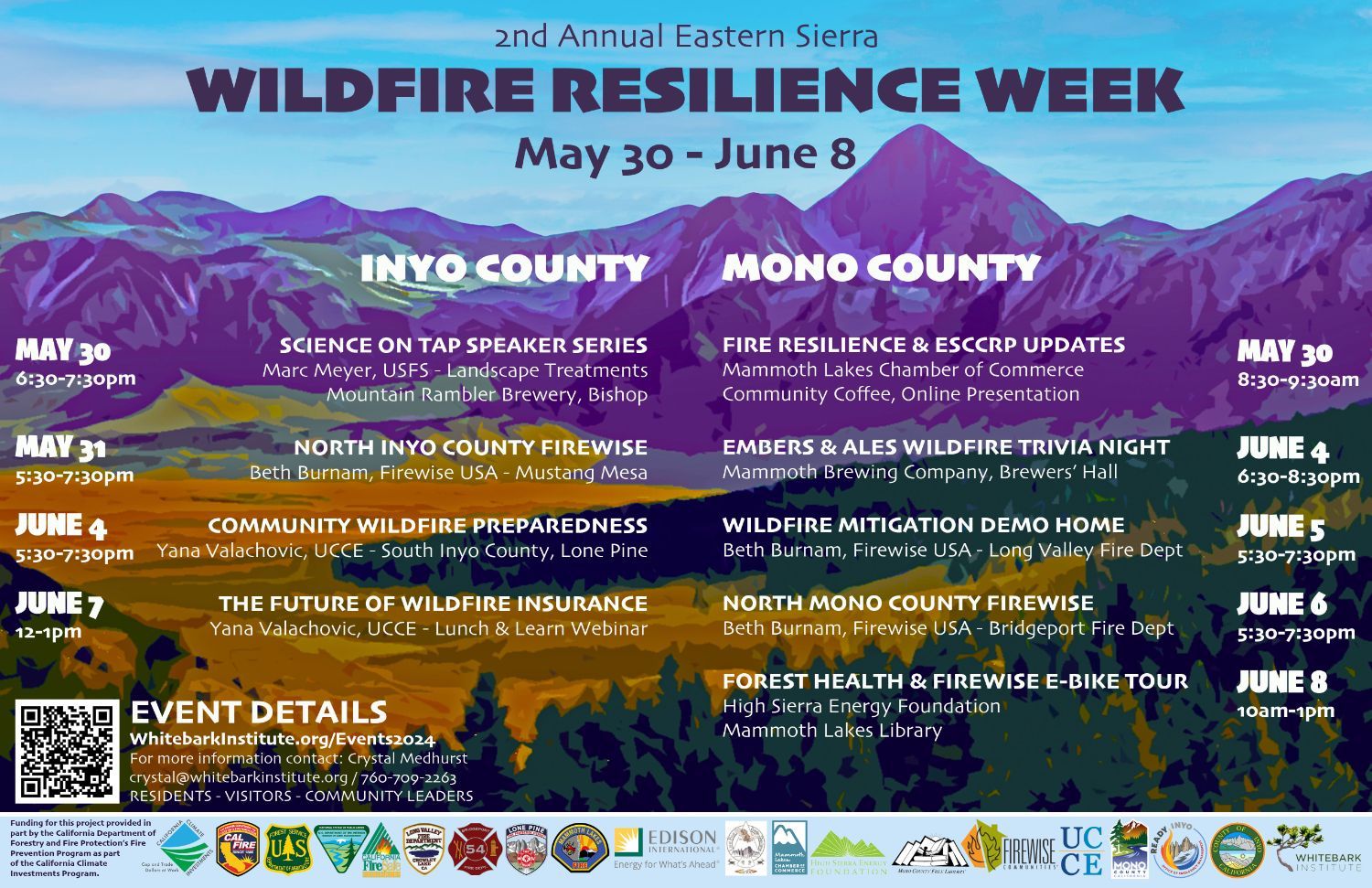 | #WildfireResilienceWeek Raging Now through June 8! In partnership with Mono and Inyo Counties, our friends at Whitebark Institute are hosting a weeklong series of events across the Eastern Sierra (see e-poster above) to help cultivate wildfire-resilient communities using effective wildfire risk reduction strategies. The goal is to equip residents with realistic and actionable steps to defend themselves and their homes from wildfires, while at the same time fostering collective action within individual communities and our entire region. Friends of the Inyo commends our community partners for doing this important work just as summer is getting underway, and encourages Eastern Sierra community members who have not yet been to a Wildfire Resilience Week event, to participate in at least one of the several still left so they can gain a comprehensive understanding of wildfire resilience strategies and to connect with fellow residents and experts in the field. Scan the QR code, or click on the e-poster above or on this link, to get more details and learn how to participate. | | | | In the photo below, Calfire Captain Stan Nelson and his crew gave a demonstration Friday, May 31, in Mustang Mesa, to show locals how CalFire might approach defending homes during a blaze, and explained in great detail what is important for effective home hardening and building defensible space around a home. This North Inyo County Firewise event was part of Wildfire Resilience Week in Inyo and Mono Counties. The event was well attended and most enlightening. | | | | | | | | | | FOI Staff received a visit from CA 3rd District Congressman Kevin Kiley on Sunday, May 26. In the photo, left to right, are Jaime Lopez Wolters, FOI Desert Lands Organizer; Allison Weber, FOI Forest and Water Policy Director; Congressman Kevin Kiley; and Joseph Miller, FOI Indigenous Community Relations Coordinator. | | | | It isn't every day that a Congressional Representative visits Friends of the Inyo, but on Memorial Day Weekend Sunday, May 26, California's 3rd District Congressman Kevin Kiley did just that. The Congressman, who was visiting with constituents in the Eastern Sierra while participating in Bishop’s annual Mule Days festivities and Memorial Day observances, took the time to drop by FOI's Bishop Office, talk to our staff, and listen to our environmental protection concerns. California’s 3rd District in the House of Representatives is the most geographically diverse district in our state, spanning most of the California-Nevada border; it includes Plumas, Sierra, Nevada, Placer, Alpine, Mono, and Inyo Counties, as well as parts of Yuba, El Dorado, and Sacramento Counties. Friends of the Inyo's Forest and Water Policy Director, Allison Weber, shared the following sentiments: "We are grateful to Congressman Kiley and his team for making the time to meet with us while in the area, and were happy to host them at our Bishop office, where we shared the work we spearhead in both Mono and Inyo Counties and the surrounding federal lands, the coalitions and initiatives we are proud to support, and, of course, the must-see sites in the Eastern Sierra." Knowing that Kiley is a Rocklin, California resident who has not had much opportunity to enjoy the vast and diverse natural beauty and culture of the Eastern Sierra, Weber said, "We hope to help remedy this in the future by taking the Congressman and his team on field tours to some of the key destinations in our working area, whether it be to the beautiful alpine high country where we do our stewardship work, or to the unique locations where we are protecting wildlife habitat and our main economic driver, recreation, from mineral exploration and extraction, such as the Bodie Hills, Hot Creek, and Conglomerate Mesa. "The Congressman expressed support for protection of the natural beauty and recreation economy of the Eastern Sierra," she said, "as well as a desire to help build further connections with federal agencies as needed. We offered our heartfelt appreciation for the Congressman’s previous work to introduce House Resolution 3427, Mono Lake Kutzadikaa Tribe Recognition Act, and were pleased to hear him reiterate his dedication to moving this and other local Tribal initiatives forward. We look forward to continuing to share information and updates with the Congressman’s office as we keep on doing what we do best – building relationships and advocating for our and our partners' work to protect the lands and waters of the Eastern Sierra." | | | | | | The Eastern Sierra Water Alliance (ESWA) Calls for Greater Public Participation in Water Management In our region marked by stunning landscapes and precious water resources, the battle for control over water extraction continues to unfold between the Los Angeles Department of Water and Power (LADWP) and diverse stakeholders in the areas we now refer to as Mono and Inyo Counties. I recently attended meetings of the Inyo County Water Commission and the Inyo/Los Angeles Technical Group (two entities created by the Long Term Water Agreement) that brought me both joy and dismay. Joy arose when I heard the passionate voices of local residents clamoring to be heard and valued in the decision-making process. Those who spoke were not only passionate about the health of our beautiful area, but extremely knowledgeable about both LADWP’s needs and its obligations. Creative solutions were proposed. Clearly a lot of thought had gone into suggestions for meeting both L.A.’s needs as well as the needs of the people and ecosystems of Payahuunadü. Dismay arose when, at both meetings, despite this outpouring of concern and expertise, LADWP remained unresponsive to calls for change in its water extraction plans for 2024 and 2025. Not only did the agency refuse to change its plans in any way, it refused to even respond to the concerns and suggestions of the participants. | | | 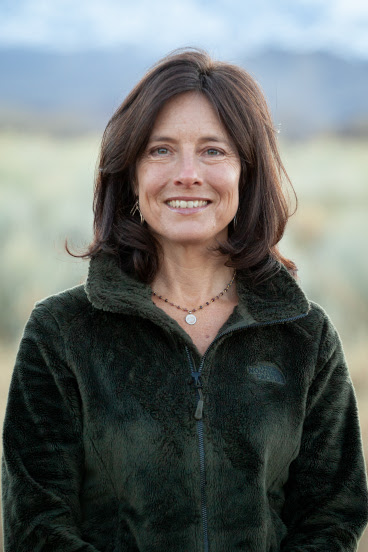 | Wendy Schneider
Friends of the Inyo's Executive Director | | | | LADWP's reluctance to engage with the concerns of local stakeholders raises questions about equity and environmental justice in water management practices. Last year, Los Angeles relied heavily on water from Payahuunadü: We supplied nearly 70% of the City’s water. This is double the yearly average in preceding years, usually between 30 and 40%. This shift has occurred even though Los Angeles has made a meaningful move towards localized water sourcing and conservation efforts within the city. Clearly, Payahuunadü has been left out of this progress. Instead, Los Angeles is decreasing the amount of water it is acquiring from other sources. A century of water extraction has taken a heavy toll on Payahuunadü, with LADWP falling short on performing most of the court-mandated measures to mitigate its environmental impact. Dust pollution continues to pose a threat to human health. In response to these persistent challenges, Friends of the Inyo has joined with the Owens Valley Indian Water Commission and the Sierra Club to form the Eastern Sierra Water Alliance. Our Alliance has launched a water justice campaign to unite water advocates in Owens Valley and hold LADWP accountable to our people and ecosystems. We submitted detailed technical comments, raising concerns and making suggestions, in response to LADWP’s 2024/2025 water extraction plan. The agency did not acknowledge, much less respond, to us. As we navigate the complex landscape of water governance in our area, it is imperative that public voices are not only heard but actively incorporated into decision-making processes. The future of water sustainability in the Eastern Sierra hinges on collaborative, inclusive approaches that consider the needs of both urban centers and rural communities alike. ESWA will continue to work toward this goal. | | | | | | We are proud to introduce this year's team of Trail Ambassadors! Trail Ambassadors are highly visible on the trails of the ranger districts where they are assigned, and, besides doing important trail maintenance and restoration work in support of the Inyo and Humboldt-Toiyabe National Forests (INF & HTNF), they also educate trail users on how to best recreate responsibly, provide interpretive talks and hikes, engage the public in volunteer public lands stewardship events, and provide a presence on the ground. Some of them like working for Friends of the Inyo so much, they are back for their second or even third summer season with us. The schedule of the hikes and other activities they will lead, will be posted at FriendsoftheInyo.org/Events later this month. Please help us in welcoming them! | | | | | | Brian Bozak - Mammoth/High Sierra
Ranger District, INF Brian moved west as a teenager. He discovered Bishop while on a bouldering trip from Southern California in 2008. He had never camped, hiked, nor climbed, but these new experiences in the Eastern Sierra imprinted a lasting positive association with this place. He moved to the Eastern Sierra in 2019. His first Friends of the Inyo volunteer event was the annual Rock Creek Lake cleanup where he embraced his love for finding micro-trash and discovered a new love for raffles. During volunteer backcountry work weeks in summer 2022, Brian felt so at home in the work Friends of the Inyo was doing to preserve wilderness that he thought he would enjoy a whole summer of stewardship. His first summer with FOI was in 2023, and he is back this year for another season. Brian's summers are usually a time for trail running, bike riding, and cooling off in creeks. | | | | Bella Gleeson - Mt. Whitney Ranger District, INF Bella grew up in the Wasatch Mountain Range of Utah. She brought her love for the mountains to the Sierra Nevada, and has spent two seasons working in Tuolumne Meadows and now lives in Lone Pine. She enjoys rock climbing, hiking, backpacking, and birding in the Eastern Sierra. Bella bolstered her love of wilderness with an education in Environmental Studies, International Studies, and Parks, Recreation, and Tourism. | | | | Jordan Marbury - Bridgeport Ranger District, HTNF Realizing the mountaineering opportunities in Georgia weren’t plentiful, Jordan fled west for snowier peaks, and more dramatic rock. His first destination? The Eastern Sierra. His next destination? More Eastern Sierra (it’s just that good). Now with over two years of extensively exploring his new backyard, he has developed a resolve to improve the condition of these areas and help others do the same. When he’s not in uniform, expect to see him wearing something gray on some remote granite peak deep in the mountains. In other words, expect to not see him. | | | | Ellie Neifeld - Mono Basin Ranger District, INF Ellie is a naturalist with a passion for the birds, rocks, and plants of the Eastern Sierra. Ellie grew up backpacking and rock climbing with her family on frequent excursions to the Sierra from her home in Oakland, CA. After earning her BA in Earth and Oceanographic Science in Maine, she immediately migrated back to the Eastern Sierra for a summer interning with the Mono Lake Committee. Since then, she has moved around the West studying tree-rings, painting birds, and rock climbing. Landing back on the eastside, she worked as the Lead Naturalist with the Eastern Sierra Interpretive Association. She now lives in Lee Vining with her fiancé and is excited to spend lots of time working outside as the Mono Basin Trail Ambassador this summer. | | | | Jean Redle - Lead Trail Ambassador,
White Mountain Ranger District, INF Jean’s passion for the mountains and rock climbing drove her west from Kentucky to Yosemite, where she worked for Yosemite Search and Rescue, Yosemite Mountaineering School and, for a decade, as an Interpretive Park Ranger in Tuolumne Meadows. This is Jean's third summer working as a Trail Ambassador, and she will be covering the White Mountain Ranger District. She loves the ever changing mountainscapes and will be leading an Interpretive Walk, “Fire and Ice,” about Glaciers, Volcanoes and Wildfires. Also, check out her Interpretive Nature-based Yoga Program offered throughout the summer. While not at work, you’ll find her rock climbing, gardening, hiking or practicing/teaching yoga. | | | | 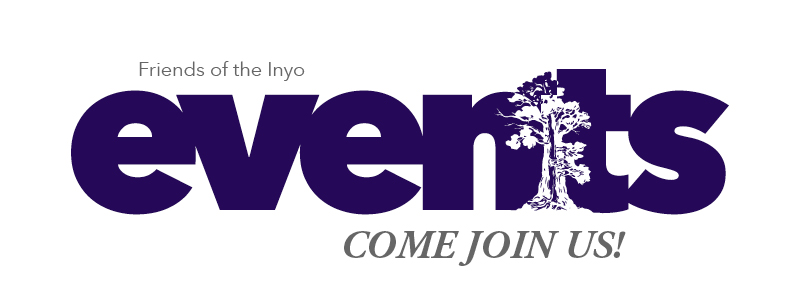 | 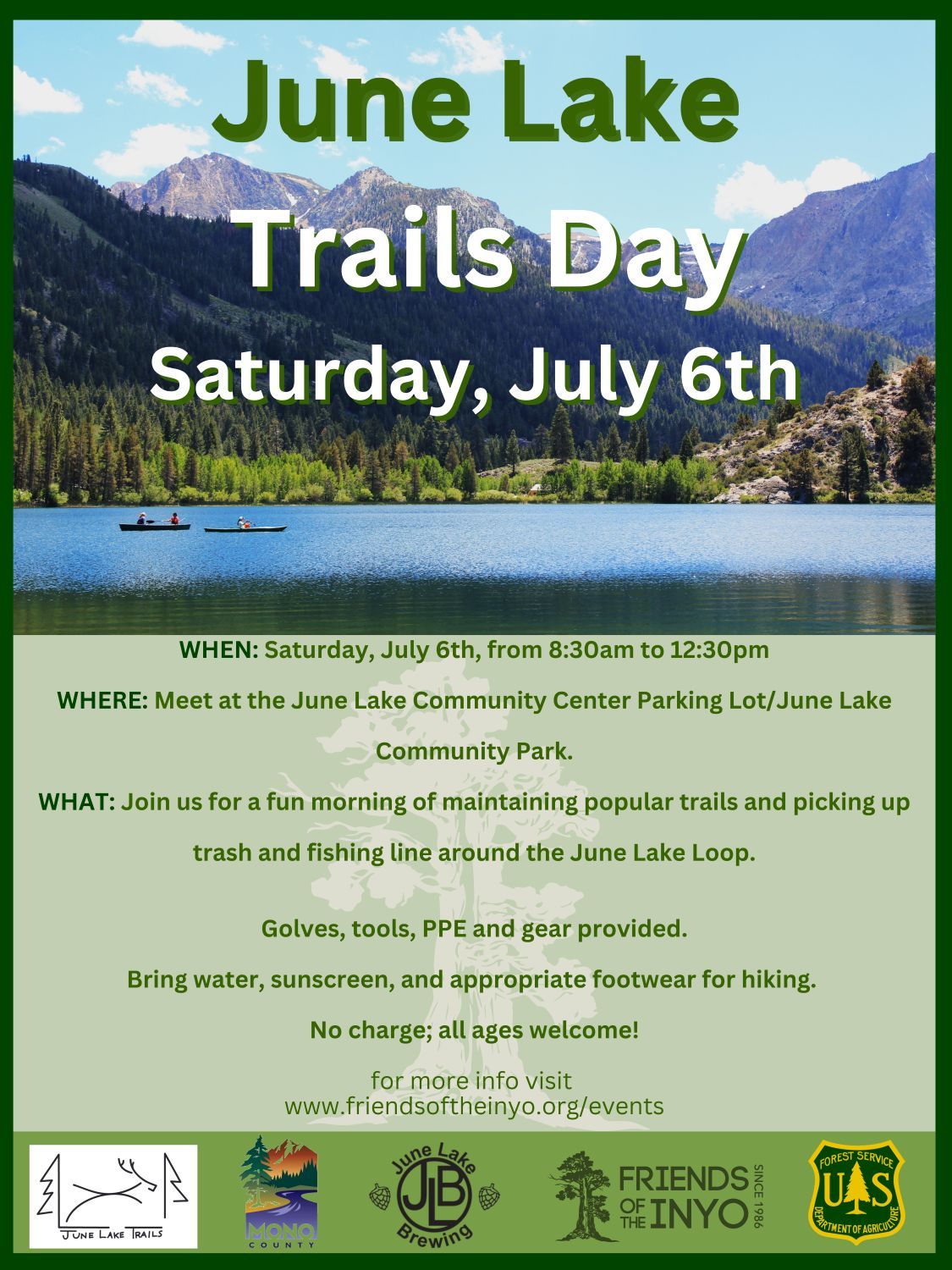 | | | | | You enjoy your moments alone in the Eastern Sierra, right? So do millions of others. Well, the U.S. Forest Service wants to make sure everyone visiting our Wilderness areas has opportunities for solitude. It all begins with research. Friends of the Inyo is assisting USFS in this effort, and for that, we need YOU! Help Friends of the Inyo conduct visitor data collection for the Forest Service in various designated Wildernesses on the Inyo National Forest. It’s easy: You can do it while you’re out enjoying nature. Click here to learn how! If you have any questions, please contact Friends of the Inyo's Stewardship Director, Lindsay Butcher, at Lindsay@friendsoftheinyo.org. | | | | | | 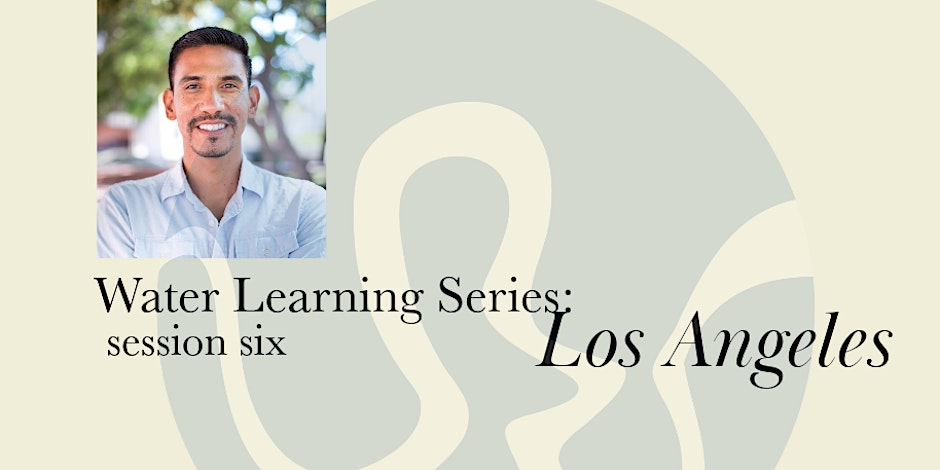 | Session Six of Walking Water's Yearlong FREE Online Water Learning Series focused on Los Angeles is scheduled for 6 to 7:30 p.m. Thursday, June 13. This session welcomes Carlos Moran, Senior Program Manager with the Council for Watershed Health. Click on the button below, or the image above, to register. | | | | NOTE: If you're still undecided about attending Walking Water's online series, read the following first-person account by FOI's Water Justice Organizer, Lauren Kelly, about her experience at a live Eastern Sierra event organized last month by Walking Water. We hope it will encourage you to engage with Walking Water and Friends of the Inyo in water justice, in either a learning or advocacy capacity. | | | | | | 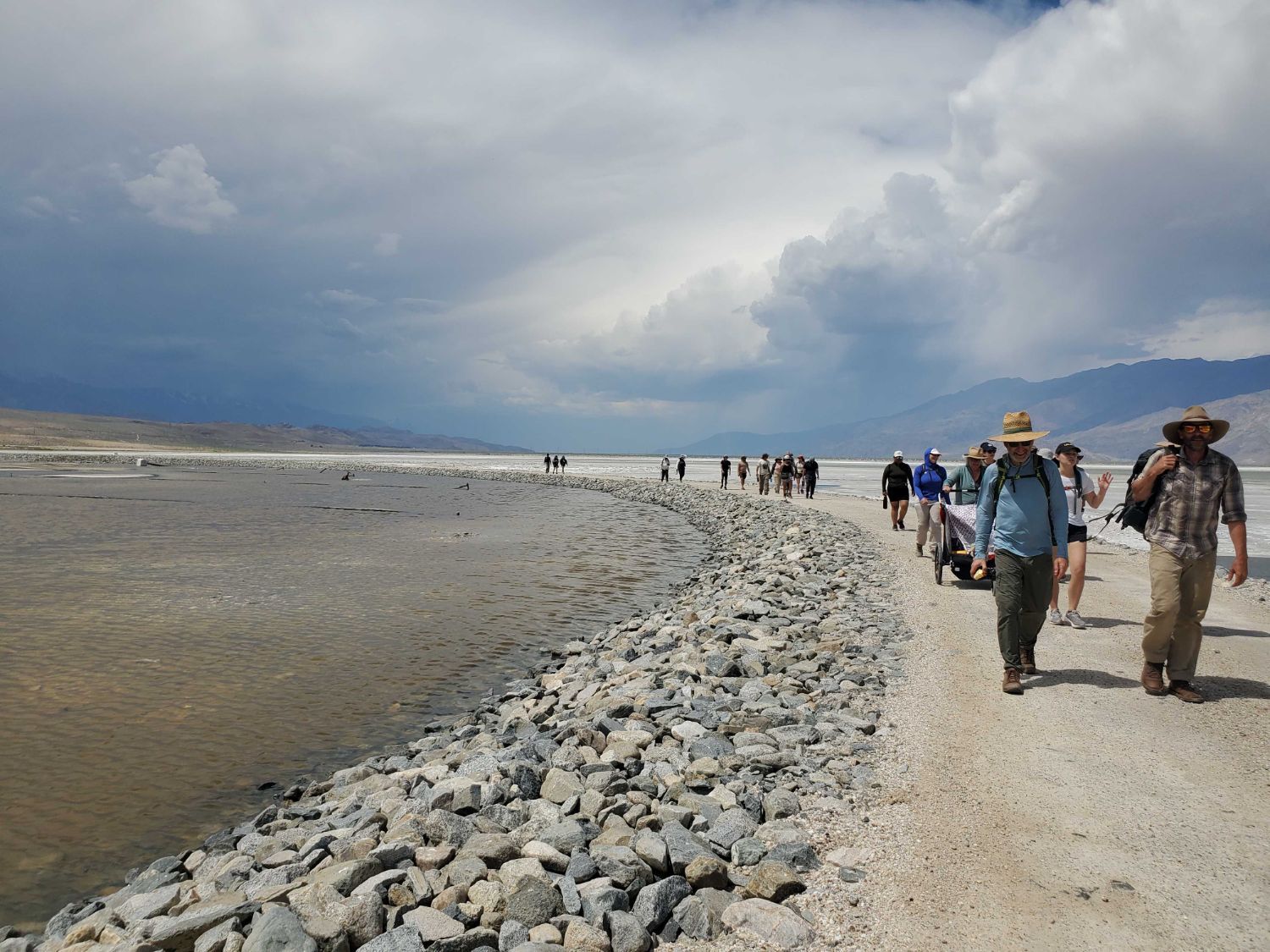 | A walk around Patsiata (Owens Lake) on May 18, was part of the first local Walks of Resilience and Accountability organized by our friends at Walking Water and the Owens Valley Indian Water Commission. Friends of the Inyo participated, of course. | | | | On May 18th and 19th, Walking Water and the Owens Valley Indian Water Commission held their first Walks of Resilience and Accountability in Payahuunadü. Until now, these Walks have taken place twice a year along the Los Angeles River. People from Payahuunadü usually drive down to Tovaangar, also known as Los Angeles, to connect with Angelenos and discuss the impacts of the Los Angeles Department of Water and Power’s water extraction. However, for the Walks this spring, people from Tovaangar drove up to Payahuunadü for a change. This included many representatives from groups like Accelerate Resilience L.A., Heal the Bay, and Spherical. The Owens Valley Indian Water Commission graciously welcomed this group onto Nüümü and Newe homelands. Almost 40 people participated in this weekend of building relationships, asking questions, and planning for a more just water future. On the first day, we walked a route around the northern end of Patsiata, also known as Owens Lake. On the second day, we met at the Fish Springs Trout Hatchery and then walked to Three Creeks, the sanctuary that recently returned to Indigenous ownership and stewardship. Across the weekend, we talked about the historical and ongoing oppression faced by the Native tribes of Payahuunadü. We also learned about some of the incredible activities and programs built by the Three Creeks Collective to support Native folks in the valley. To learn more and get involved, please join us at the next Walks of Resilience and Accountability this October, back along the L.A. River! We will share details with everyone closer to the date. – Lauren, Water Justice Organizer with Friends of the Inyo | | | | | | | | | | Bodie Hills Conservation Partnership Quarterly Newsletter - April 2024 | | 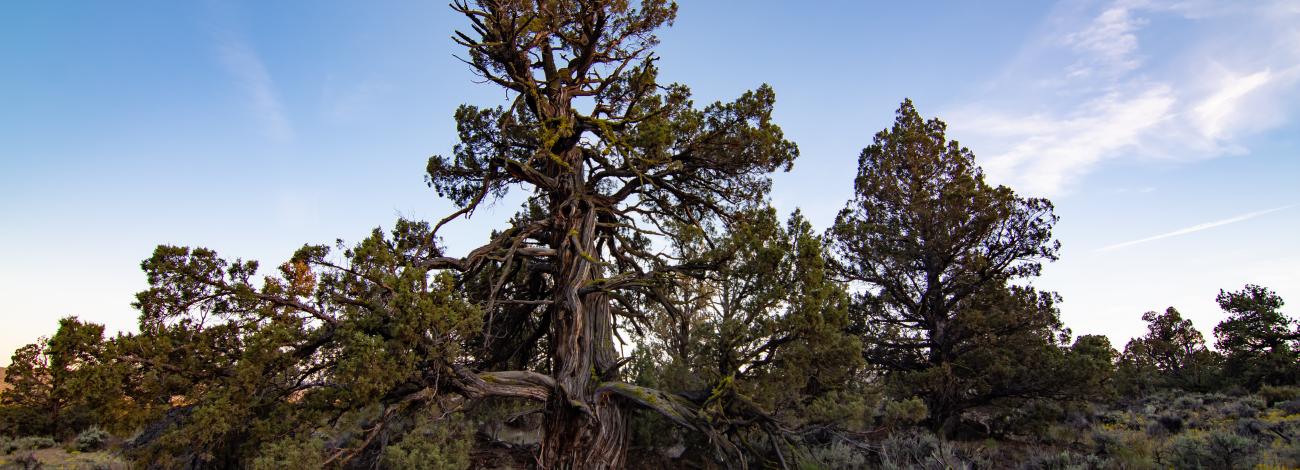 | | | 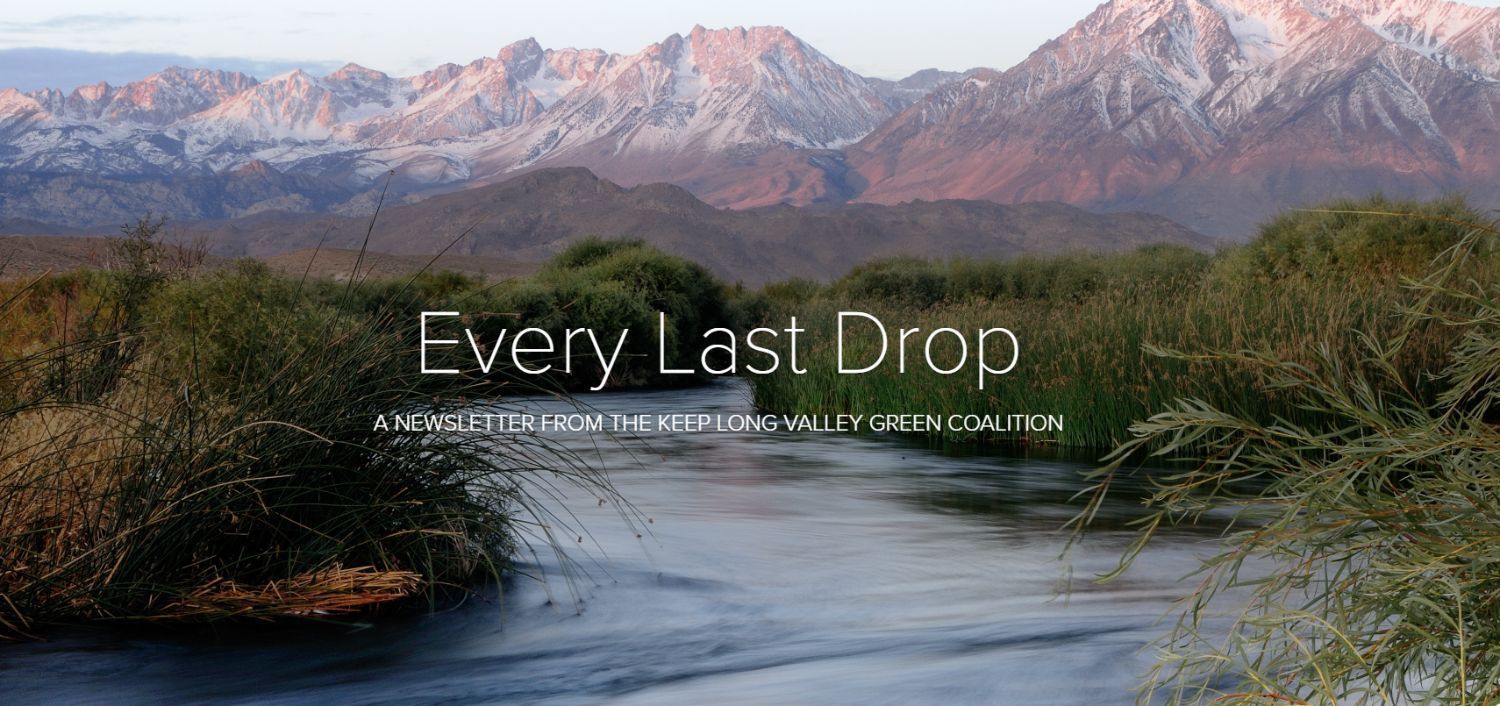 | | | | | | | 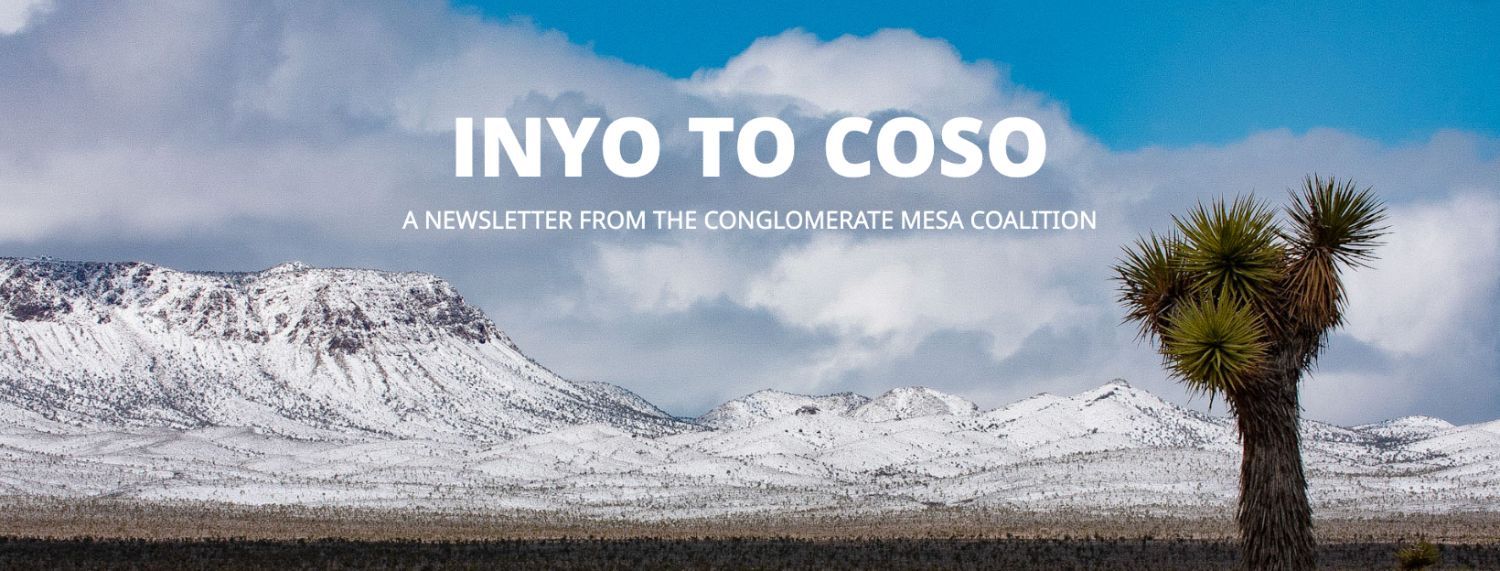 |  | This Father's Day, give Dad the gift of coffee: But not just any brand! Fat Trout Coffee from Black Sheep Coffee Roasters in Bishop is a 100% arabica blend of coffee beans from all over the world and available in medium and dark roast. Sold in 2 lb. bags, it makes the perfect gift for the coffee lover who also supports conservation—a dad, a grad, or anyone anytime of year, for that matter—as a portion of proceeds from each sale is donated to Friends of the Inyo! Use the button below to go straight to the Fat Trout page on the Black Sheep Coffee Roasters website to make a purchase, or visit Black Sheep Coffee Roasters at 232 N. Main Street, in Bishop. | | | | | | | | The best way to support Friends of the Inyo is by becoming a member—or renewing your membership—through a one-time or recurring donation totaling $35 or more. You'll enjoy such benefits as receiving our Juniper Monthly E-Newsletter, Action and Event Alerts, and our Jeffrey Pine Journal, a handsome, 24-page magazine published in Spring and Fall, FREE. You'll also get members-first rights to buy tickets to our ticketed events. Donate on behalf of yourself, or in honor or memory of a loved one. Gift a membership to a friend. Or sign up to make a recurring donation—it's a great way to help sustain our mission: To protect and care for the land and water of the Eastern Sierra. Thank you in advance for your generous support! | | | | | | | | Friends of the Inyo appreciates the following organizations and local businesses for their generous monetary sponsorship of our programs: | | | | | | | | Inyo Mono Alpine County
Cattlemen’s Association | |  | | | | | | | Remember to update the address to our new location: Friends of the Inyo
621 W. Line St., Suite 201
Bishop, CA 93514 FriendsoftheInyo.org | | | | Like and follow us on social media: | | | | | | |